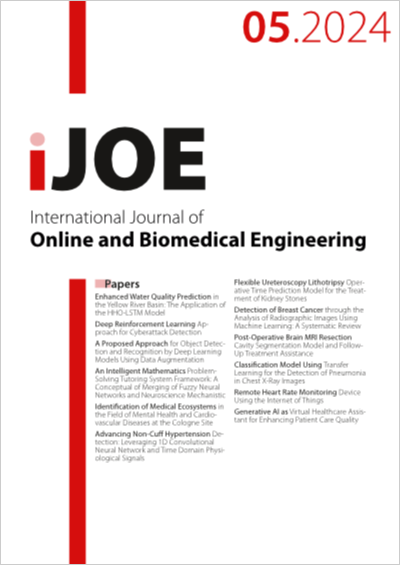Generative AI as Virtual Healthcare Assistant for Enhancing Patient Care Quality
DOI:
https://doi.org/10.3991/ijoe.v20i05.45937Keywords:
generative AI, chatGPT, patient care quality, virtual healthcare assistant, healthcare applicationsAbstract
This study investigates the potential of Chat Generative Pre-Trained Transformer (ChatGPT) as a virtual healthcare assistant to enhance the quality of patient care. Inadequate patient care within healthcare systems is a key issue that has resulted in lower satisfaction and medical errors. Virtual healthcare assistants, exemplified by ChatGPT, have emerged as a promising solution to mitigate these challenges. A comprehensive literature review compares the benefits and drawbacks of using virtual healthcare assistants with those of human healthcare providers to assess their effectiveness in enhancing patient care. The article discusses the ChatGPT development process, including the data sources used, training and validation, and the integration of this technology into healthcare systems. The results of testing ChatGPT in patient care, including patient feedback, are provided. The study interprets these findings and indicates that ChatGPT can significantly enhance patient care. The implications of implementing virtual healthcare assistants in the healthcare sector are also explored, along with potential future research areas for enhancing ChatGPT. This study provides important new insights into how virtual healthcare assistants might enhance patient care and offers recommendations for healthcare organizations and legislators on leveraging ChatGPT. It shows that the astonishing development in patient care, known as ChatGPT, has the potential to revolutionize the healthcare industry.
Downloads
Published
How to Cite
Issue
Section
License
Copyright (c) 2024 Agariadne Dwinggo Samala, Soha Rawas

This work is licensed under a Creative Commons Attribution 4.0 International License.



